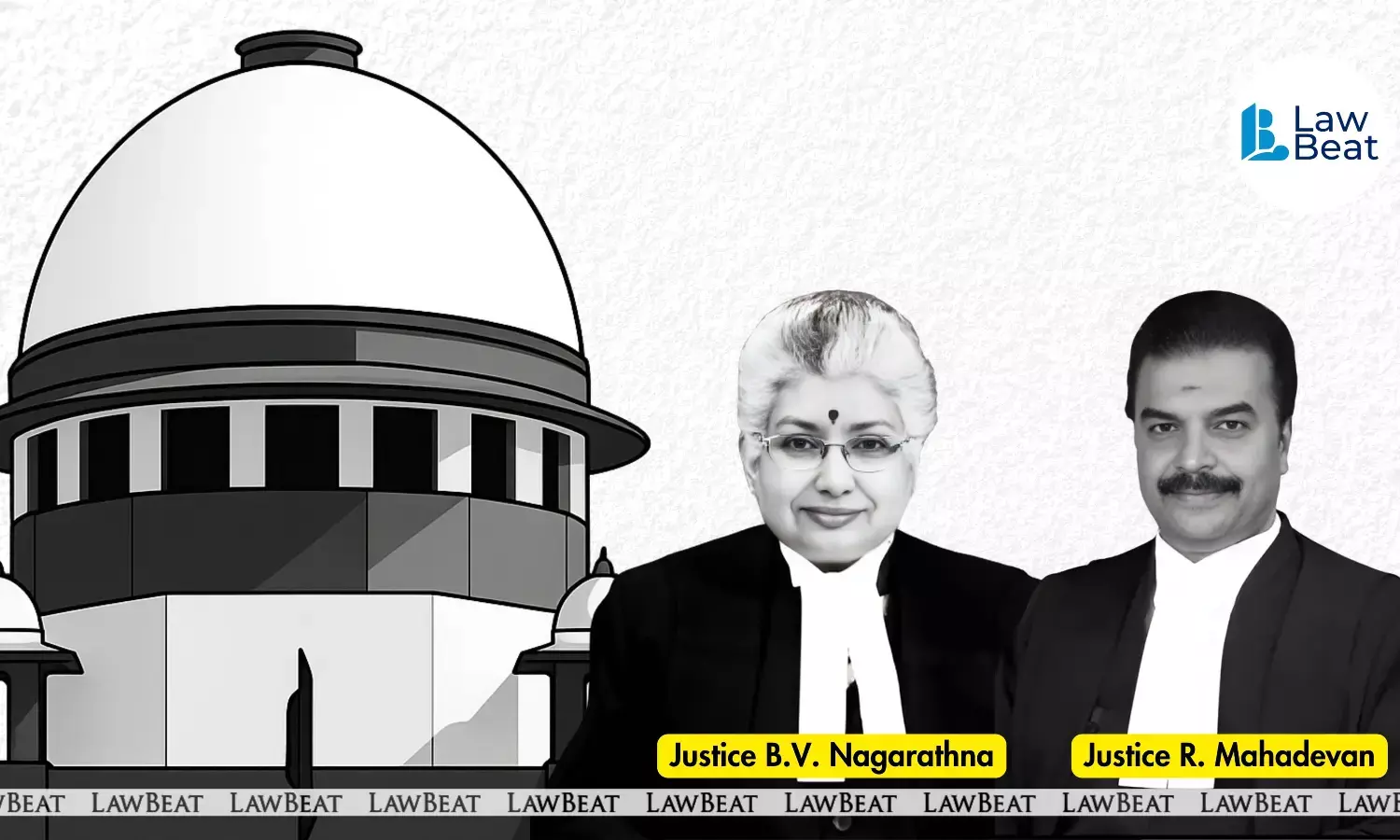POCSO Act Being Misused in Marital Discord, Consensual Teen Relationships: Supreme Court

Supreme Court quashes rape case against advocate, saying long consensual relationship is not rape on promise of marriage
The Supreme Court on Tuesday observed that the Protection of Children from Sexual Offences (POCSO) Act is increasingly being misused in cases arising out of marital discord and consensual relationships between adolescents.
The Court stressed the need to spread legal awareness among boys and men about the penal consequences of such offences.
The Bench of Justices B.V. Nagarathna and R. Mahadevan made the oral observation while hearing a public interest litigation (PIL) filed by Senior Advocate Aabad Harshad Ponda, seeking directions to promote public sensitisation regarding laws governing sexual offences and the POCSO Act.
"One thing we would like to remark. The POCSO Act is being misused in cases of marital discords and matters pertaining to consensual relationships between adolescents. We should spread awareness in boys and men about the legal provisions," the Bench said during the hearing.
The matter has been adjourned to December 2 after the Bench noted that several States and Union Territories had yet to file their responses.
Earlier in August, the Court had issued notices to the Union government, the Ministries of Education and Information & Broadcasting, and the Central Board of Film Certification (CBFC) on the PIL. Ponda, arguing in person had emphasised the need to educate the public on laws relating to rape and amendments made following the Nirbhaya case, highlighting that awareness could prevent misuse and promote respect for women’s rights.
Notably, on May 6, the Court had proposed introducing two weekly periods dedicated to moral education and citizenship values in all schools across the country; both government and private. Pressing further on moral education, Justice Nagarathna had observed, “Why can’t there be two classes in a week for this subject in all government and private aided and unaided schools in the country? It will help the children.” She further remarked that children could potentially influence their families with the values they learn in school, noting, “The children can even educate their parents about it, if they are interested in school.”
Senior Advocate Aabad Harshad Ponda, who had appeared virtually, called for systemic reforms in education as a preventive mechanism to curb crimes, particularly those targeting women.
The PIL emphasized that punitive action after the crime is insufficient and that preventive steps through education and awareness are the need of the hour. The petitioner highlighted the existing disconnect between the legislature's intent and the public's awareness of the law. “The challenge is not merely punishing offenders, but ensuring that such crimes are not committed in the first place,” the petition stated, arguing that laws must be made accessible and understandable to the public, especially the youth.
Referring to the legislative developments following the 2012 Nirbhaya case, the PIL noted that despite harsher punishments introduced since then, the frequency of rape cases has not declined. “Despite the rape laws being made more stringent post-Nirbhaya, this crime only seems to be on the rise,” the petition stated, warning against a “knee-jerk reaction” of further increasing punishments. It further raised constitutional concerns over recent legislative moves in states like Maharashtra, Andhra Pradesh, and West Bengal that seek to introduce mandatory death penalties for rape-cum-murder cases. The petition referred to the Supreme Court’s ruling in Mithu v. State of Punjab (1983) which held that mandatory death penalties violate fundamental rights and cannot be sustained under the Constitution.
Additionally, the petitioner cautioned against the misuse of stringent provisions, citing risks of false accusations and denial of due process, including anticipatory bail. The PIL argued that justice must be tempered with fairness and that preventive education is more effective than reactionary harshness. Seeking broader societal reform, the petition called for the inclusion of moral education and gender sensitivity in school curriculums. It advocated for gender equality training to begin early, particularly among boys, to change attitudes that normalize or tolerate violence against women.
Case Title: Aabad Harshad Ponda v. Union of India & Ors.
Hearing Date: November 4, 2025
Bench: Justice BV Nagarathna and Justice R. Mahadevan
